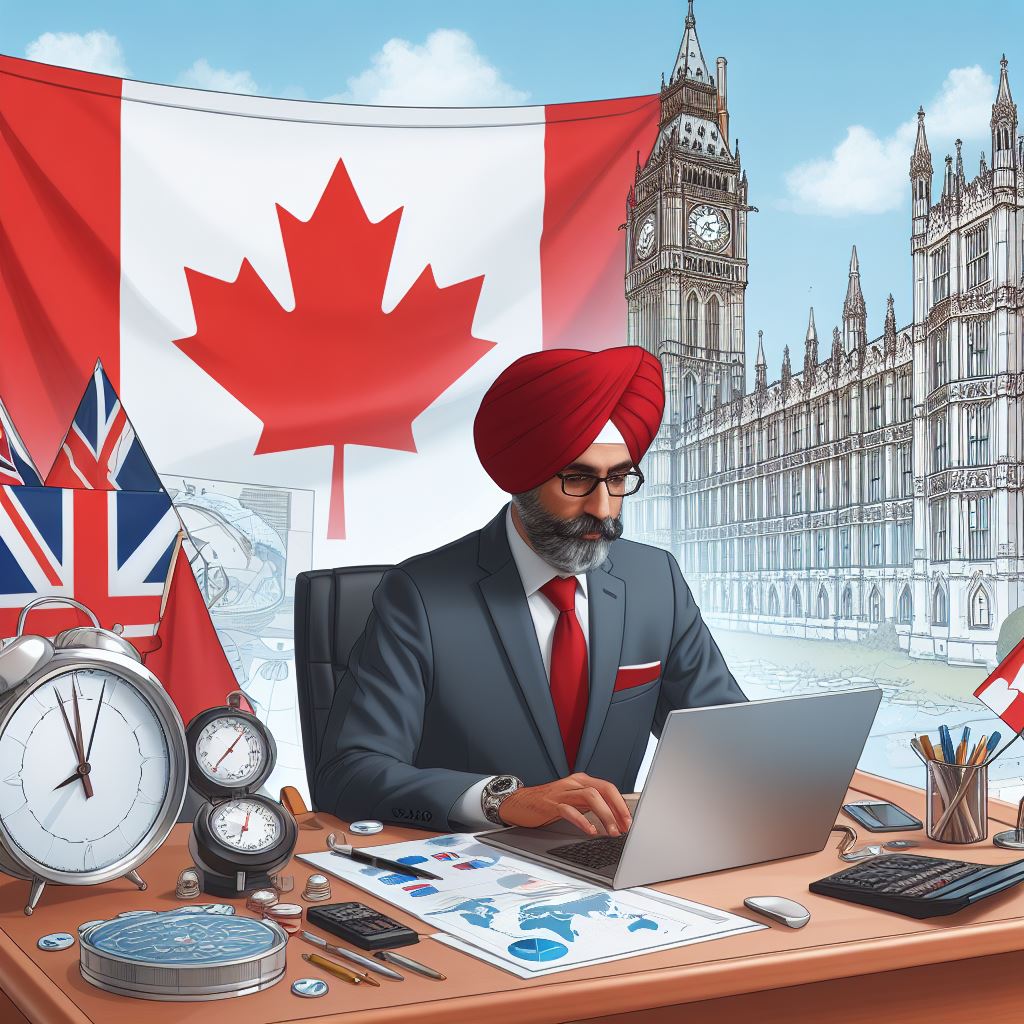Languages for Diplomats: What to Learn
Last Updated on January 28, 2024
Introduction
Languages are invaluable for diplomats, as language skills play a crucial role in their effectiveness in international relations.
In this section, we will explore the significance of language skills for diplomats and provide an overview of the topic “Languages for Diplomats.”
Having strong language skills is essential for diplomats because it allows them to effectively communicate with their foreign counterparts.
Fluency in multiple languages enables diplomats to understand different cultures and convey their messages accurately.
Furthermore, language skills are crucial in diplomacy as they foster trust and build relationships.
When diplomats speak the language of their host country, it demonstrates respect and a genuine interest in understanding their culture.
This leads to increased cooperation and smoother diplomatic negotiations.
In addition to the diplomatic benefits, knowing multiple languages also enhances a diplomat’s career prospects.
Languages such as English, French, Spanish, Mandarin, and Arabic are in high demand in international diplomacy.
Fluency in these languages opens up more opportunities for postings and helps diplomats establish themselves as skilled and adaptable professionals.
Moreover, being able to communicate directly in a foreign language enables diplomats to access information and nuances that might be lost in translation.
This linguistic advantage allows diplomats to gather accurate intelligence, which is vital for effective decision-making.
Lastly, language skills provide diplomats with a competitive edge in the international arena.
In an increasingly globalized world, diplomats who can bridge the language barrier have a better chance of successfully representing their country’s interests and achieving diplomatic objectives.
In short, language skills are of utmost importance for diplomats.
Not only do they facilitate effective communication and relationship-building, but they also enhance career prospects and provide a competitive advantage.
As the world becomes more interconnected, diplomats must prioritize language learning to excel in their roles as representatives of their countries.
Most Commonly Required Languages for Diplomats
The Most Commonly Required Languages in the Field of Diplomacy
- English: It is the universal language of diplomacy due to the dominance of English-speaking countries in international affairs.
- French: As one of the official languages of the United Nations, French is vital for diplomats dealing with Francophone countries.
- Spanish: With the growing influence of Latin America, Spanish has become important for diplomats in that region.
- Mandarin Chinese: The economic power of China has made Mandarin Chinese a valuable language for diplomats.
The Reasons Behind the Popularity of These Languages
English is globally spoken due to the historical dominance of English-speaking nations in international affairs.
French is essential due to its official status in organizations like the United Nations and its use in diplomacy.
Spanish is popular due to the economic and political significance of Latin America in the global arena.
Arabic is important because of the geopolitical importance of the Middle East and its rich historical heritage.
Mandarin Chinese is in demand because of China’s economic rise and its growing influence in international politics.
Specific Regions or Countries where these Languages are in High Demand
English is universally required, but particularly essential in North America, Europe, and most international organizations.
French is in high demand in Francophone countries, particularly in Africa, as well as in international organizations like the UN.
Spanish is essential in Latin American countries, the Caribbean, and among Spanish-speaking communities worldwide.
Arabic is highly sought-after in the Middle East, North Africa, and among diplomats dealing with Arab countries.
Mandarin Chinese is particularly valuable in East Asia, Southeast Asia, and among diplomats working with China and its allies.
Read: Career Paths: Beyond the Diplomat Role
Strategic Language Learning for Diplomats
The strategic approach to language learning for diplomats
- Language learning for diplomats requires a strategic approach to maximize effectiveness and efficiency.
- Diplomats should identify the languages that are most relevant to their diplomatic goals and assignments.
- Researching the strategic importance of languages in the political, economic, and cultural spheres is essential.
- Understanding the geopolitical landscape can help diplomats prioritize languages that will offer the most diplomatic leverage.
- It is important to assess the level of difficulty associated with learning a particular language and allocate resources accordingly.
- Diplomats can leverage their existing language skills to enhance their strategic language learning efforts.
- Collaborating with language experts and native speakers can provide unique insights into cultural nuances and political contexts.
- A strategic approach to language learning involves setting realistic goals and developing a structured plan to achieve them.
- Diplomats should actively seek opportunities to practice their language skills through immersion, cultural exchange programs, and language courses.
- Regularly evaluating progress and adjusting learning strategies can ensure continuous improvement in language proficiency.
The importance of understanding the political, economic, and cultural significance of a language
- Language proficiency goes beyond communication; it enables diplomats to navigate political landscapes effectively.
- Diplomats who speak the local language can establish stronger connections, build trust, and negotiate more effectively.
- Economic diplomacy relies heavily on language skills as it facilitates trade negotiations and business interactions.
- Understanding the cultural significance of a language helps diplomats to foster cultural understanding and bridge potential gaps.
- Knowledge of a language’s historical context can enhance cultural sensitivity and facilitate diplomatic negotiations.
- Language proficiency enables diplomats to engage with local media, influencing public opinion and shaping foreign policy.
- Being able to access local sources in their original language allows diplomats to gather accurate and timely information.
- Language skills can serve as a powerful tool for cultural diplomacy, promoting cultural exchange and mutual understanding.
- Diplomats who possess language skills are seen as more committed to building strong bilateral relationships.
- Understanding the significance of a language enhances cultural intelligence, which is crucial in diplomatic engagements.
Tips on how diplomats can prioritize their language learning efforts based on their career goals and assignments
- Identify the countries and regions that are central to your diplomatic career goals and assignments.
- Consult with mentors, supervisors, or language experts to determine the languages that are most relevant.
- Prioritize learning languages that have strategic importance in global affairs or critical to your country’s foreign policy.
- Consider the economic significance of languages in terms of trade partnerships or investment potential.
- Analyze the cultural significance of languages to foster stronger cultural ties and people-to-people exchanges.
- Assess your existing language skills and focus on improving proficiency in languages that align with your assignments.
- Allocate time and resources based on the level of difficulty associated with learning the targeted languages.
- Incorporate language learning into your daily routine, such as dedicating regular study time or using language apps.
- Seek opportunities to practice languages through language exchange programs, international conferences, or embassy events.
- Continuously evaluate and adjust your language learning efforts based on career progression and changing assignments.
In essence, adopting a strategic approach to language learning is imperative for diplomats.
Understanding the political, economic, and cultural significance of languages can inform their choices and prioritize their efforts effectively.
By considering career goals, assignments, and the strategic importance of languages, diplomats can enhance their proficiency and maximize their diplomatic impact.
Read: Cultural Sensitivity in Diplomacy: Tips

Language Proficiency Levels and Fluency
In order to succeed in the field of diplomacy, diplomats must achieve different language proficiency levels depending on their role and responsibilities.
Language Proficiency Levels
- Basic Proficiency: Diplomats at the entry-level positions generally need to have a basic proficiency in the language spoken in their host country. They should be able to understand and communicate simple ideas and have a working knowledge of vocabulary and grammar.
- Intermediate Proficiency: As diplomats progress in their careers, they are expected to achieve intermediate proficiency. This level of proficiency allows diplomats to engage in more complex conversations, participate in meetings, and negotiate with local counterparts.
- Advanced Proficiency: Diplomats in higher-level positions, such as ambassadors or senior diplomats, are required to have an advanced proficiency in the language. This level of proficiency enables them to effectively represent their country, engage in high-level negotiations, and deliver speeches and presentations.
- Native-like Proficiency: While not always a requirement, diplomats who achieve native-like proficiency in the language of their host country have a significant advantage. Native-like proficiency allows diplomats to fully integrate into the local culture, understand subtle nuances in communication, and build stronger relationships with local counterparts.
Language Requirements for Entry-level Positions versus Higher-level Positions
Entry-level positions typically require basic proficiency in the local language.
The focus is more on understanding everyday conversations, basic diplomatic terminology, and cultural norms.
Higher-level positions, on the other hand, often require advanced or native-like proficiency in the local language.
This is because diplomats in these positions are responsible for representing their country at a higher level, engaging in complex negotiations, and effectively communicating with local leaders and officials.
Improving Fluency in a Language
Once diplomats have achieved the required proficiency level in a language, it is crucial for them to maintain and improve their fluency.
Here are some ways diplomats can work on improving their language skills:
- Immersion: Immersing oneself in the local culture and actively using the language in day-to-day activities can greatly enhance fluency. This includes socializing with locals, reading newspapers, and watching local TV programs.
- Language Exchange: Participating in language exchange programs, where diplomats can practice their language skills with native speakers in exchange for helping them learn their own language, can be an effective way to improve fluency.
- Continuing Education: Enrolling in language courses or hiring a private tutor can provide diplomats with structured learning opportunities to further enhance their language skills. These courses often focus on specific areas such as diplomacy-related vocabulary or public speaking.
- Regular Practice: Consistently using the language in both personal and professional settings is essential for maintaining and improving fluency. Diplomats should actively seek opportunities to use the language, whether it be through meetings, negotiations, or social interactions.
- Language Enclaves: Joining language enclaves or communities where diplomats can interact with native speakers and engage in conversation can be helpful in maintaining fluency and staying up to date with current idioms and expressions.
By continually working on their language skills and striving for fluency, diplomats can effectively navigate diplomatic challenges, build stronger relationships, and represent their country with confidence in an increasingly interconnected world.
Read: Diplomatic Etiquette: Dos and Don’ts
Delve into the Subject: Canadian Women in Politics: Challenges
Language Skills and Specializations
The different language skills required for diplomats
When it comes to diplomats and their language skills, there is much more than meets the eye.
Diplomats are often required to possess a diverse range of language skills to effectively communicate and negotiate on behalf of their countries.
First and foremost, diplomats must excel in speaking languages.
They should be able to fluently converse in different languages to engage with foreign counterparts during official meetings and negotiations.
Effective communication is the key to building strong diplomatic relationships.
Reading is another essential language skill for diplomats. They need to be able to comprehend complex texts and documents written in various languages.
This includes understanding legal documents, international agreements, and official reports.
Reading skills enable diplomats to stay informed and make informed decisions.
Writing is equally important for diplomats. They are often required to draft official correspondence, reports, and diplomatic notes.
Diplomats must be proficient in writing formal documents that accurately convey their country’s position and perspective.
Interpreting skills are crucial for diplomats who need to work with interpreters during international meetings and conferences.
They must be able to understand and interpret different languages accurately to ensure effective communication between parties.
Specialized vocabulary and terminology play a crucial
the importance of specialized vocabulary and terminology in diplomatic language use role in diplomatic language use.
Diplomats need to be familiar with specific terms and jargon related to international relations, treaties, and diplomacy.
This specialized vocabulary allows diplomats to navigate complex negotiations and convey precise meaning.
potential career benefits of acquiring specialized language skills for diplomats
The importance of specialized language skills is tied to the uniqueness of diplomatic communication.
Diplomats are expected to have a deep understanding of the cultural and political nuances associated with specific languages.
This knowledge helps them build trust and rapport with foreign counterparts.
Acquiring specialized language skills can greatly benefit diplomats in their careers.
Firstly, it increases their marketability and opens up opportunities for positions in multilateral organizations and foreign missions.
Employers value diplomats who can communicate effectively in multiple languages.
Furthermore, specialized language skills enhance diplomats’ ability to represent their country’s interests abroad.
It allows them to engage in nuanced discussions, understand subtle diplomatic signals, and effectively advocate for their country’s positions.
Diplomats with specialized language skills are better equipped to navigate complex international negotiations.
Having specialized language skills also provides diplomats with a competitive edge in the job market.
It demonstrates a commitment to ongoing professional development and an understanding of the importance of cultural sensitivity in diplomacy.
This can lead to career advancement and increased job opportunities.
In a nutshell, diplomats require a range of language skills including speaking, reading, writing, and interpreting.
Specialized vocabulary and terminology are crucial for effective diplomatic communication.
Acquiring specialized language skills offers career benefits such as increased marketability and the ability to navigate complex negotiations.
Diplomats with these skills are better equipped to represent their countries on the global stage.
Read: The Evolution of Diplomacy: A Canadian View
Resources and Tools for Language Learning
Learning a foreign language as a diplomat can be challenging, but with the right resources and tools, it is definitely achievable.
List of recommended resources and tools for diplomats to learn languages
Here is a list of recommended resources and tools that can assist diplomats in their language learning journey:
- Online Platforms: Online platforms such as Duolingo, Rosetta Stone, and Babbel offer interactive language courses suitable for diplomats.
- Language Courses: Diplomats can enroll in language courses offered by renowned institutions like the Foreign Service Institute (FSI) or language schools in their host countries.
- Language Learning Apps: Mobile apps like Memrise, FluentU, and HelloTalk provide language learning materials and interactive tools.
- Language Exchange Programs: Diplomats can participate in language exchange programs where they can practice with a native speaker in exchange for teaching their own language.
- Online Language Communities: Platforms like italki, Tandem, and Verbling connect diplomats with language tutors for personalized language learning sessions.
- Language Learning Websites: Websites like BBC Languages, MyLanguageExchange, and Transparent Language offer language learning resources, including grammar lessons and vocabulary exercises.
- Mobile Dictionary Apps: Apps like WordReference, Linguee, and Google Translate can be handy tools for quick vocabulary references while on diplomatic assignments.
- Language Learning Podcasts: Diplomats can listen to language learning podcasts like Coffee Break Languages or News in Slow to enhance their listening skills.
- Embassy Language Programs: Many embassies offer language learning programs specifically designed for diplomats, providing them with tailored language instruction.
- Language Immersion Programs: Consider participating in language immersion programs where diplomats can live and learn in a country where their target language is spoken.
- Cultural Exchange Programs: DiploMates, a cultural exchange initiative for diplomats, offers language learning opportunities with a focus on cultural understanding.
These resources and tools provide diplomats with a wide range of options to suit their preferred learning style and schedule.
Consistency and dedication are key when it comes to language learning, and utilizing these resources can significantly enhance the learning process.
Conclusion
Language skills are of utmost importance for diplomats. It is crucial for them to invest time and effort in learning languages to enhance their career prospects.
Language learning is an ongoing process that requires continuous improvement.
By acquiring fluency in multiple languages, diplomats can effectively communicate with their counterparts from different countries.
This ability to understand and be understood in various languages allows them to build stronger relationships and negotiate more successfully.
Furthermore, diplomats with language skills can serve as valuable cultural intermediaries.
They can bridge the gap between different countries, promoting understanding and cooperation.
This can have a profound impact on diplomatic negotiations and international relations as a whole.
In today’s globalized world, diplomats are expected to be not only proficient in their native language but also knowledgeable in several foreign languages.
This demonstrates their commitment to diplomacy and strengthens their credibility on the international stage.
It is crucial for diplomats to invest in language learning throughout their careers.
Whether through formal education, language immersion programs, or self-study, diplomats should continuously strive to improve their language skills.
Diplomats should recognize the importance of language skills and strive to become proficient in multiple languages.
By doing so, they can maximize their impact, build stronger relationships, and enhance their career prospects in the field of diplomacy.


